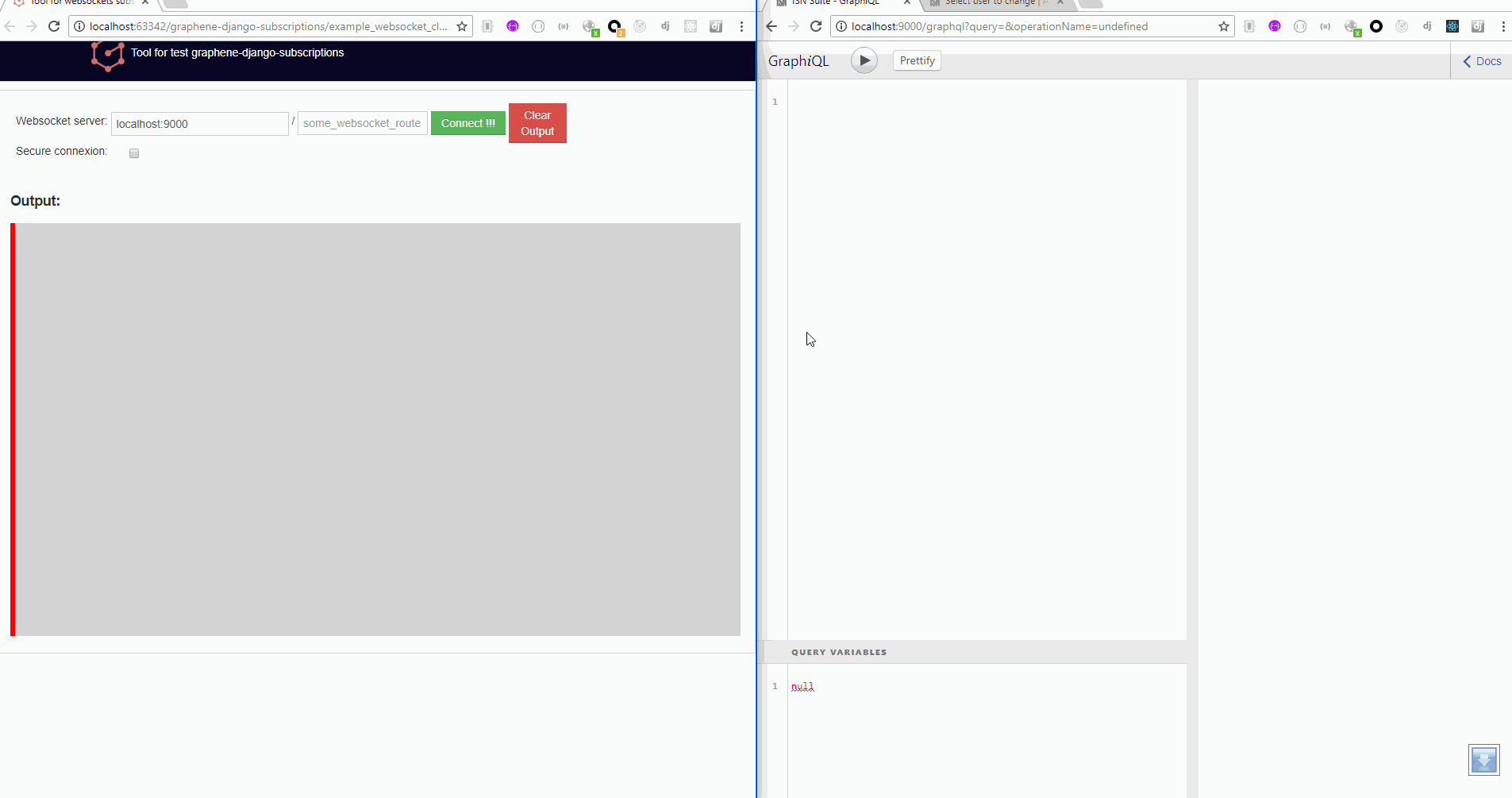Hmm I think I understand now, In the on next, I could also send to the reply channel in channels My question is this now, will it block other normal request from occurring in django? hmm, I need to figure out how to connect django signals with this new mechanism ... any ideas?
currently im adding the reply channel to a group and returning the query, With this new layout would it even be necessary to add the reply_channel to a group ? hmm, I need to keep reading.
~ 1 result = schema.execute(query, variable_values=foovar, allow_subscriptions=True, **kwargs)
+ 2 if isinstance(result, rx.Observable):
+ 3 class MyObserver(rx.Observer):
+ 4
+ 5 def on_next(self, x):
+ 6 nonlocal result
+ 7 result = x
+ 8
+ 9 def on_error(self, e):
+ 10 ...
+ 11
+ 12 def on_completed(self):
+ 13 ...
+ 14 result.subscribe(MyObserver())
15 data = result.data 



Hello, I have previously gotten subscriptions to crudely work https://github.com/graphql-python/graphene/pull/500#issuecomment-325560994
But now i want to try the new version of the graphql-core library and here is how far I've gotten. It is not very clear to me what a Async Iterable is meant to be I assumed that its a Async generator?
but from this line it seems to be anything that is an instance of an Observable https://github.com/graphql-python/graphql-core/blob/0b0551e7dfb724dedc66759145b9221595ec8598/graphql/execution/executor.py#L296 Is there any documentation for graphql-cores new approach to subscriptions .. I would very much like to learn more.
Here is what im trying